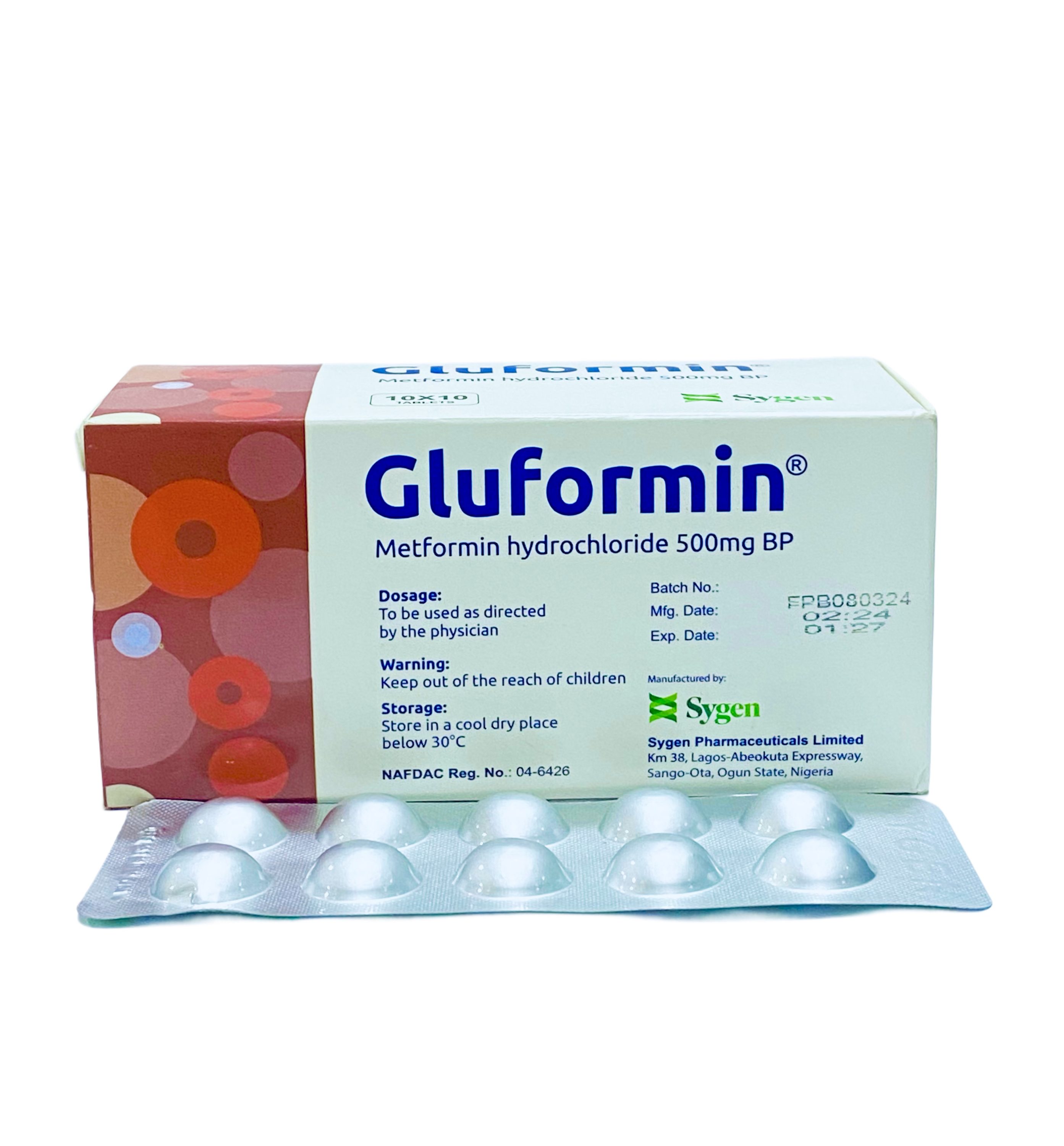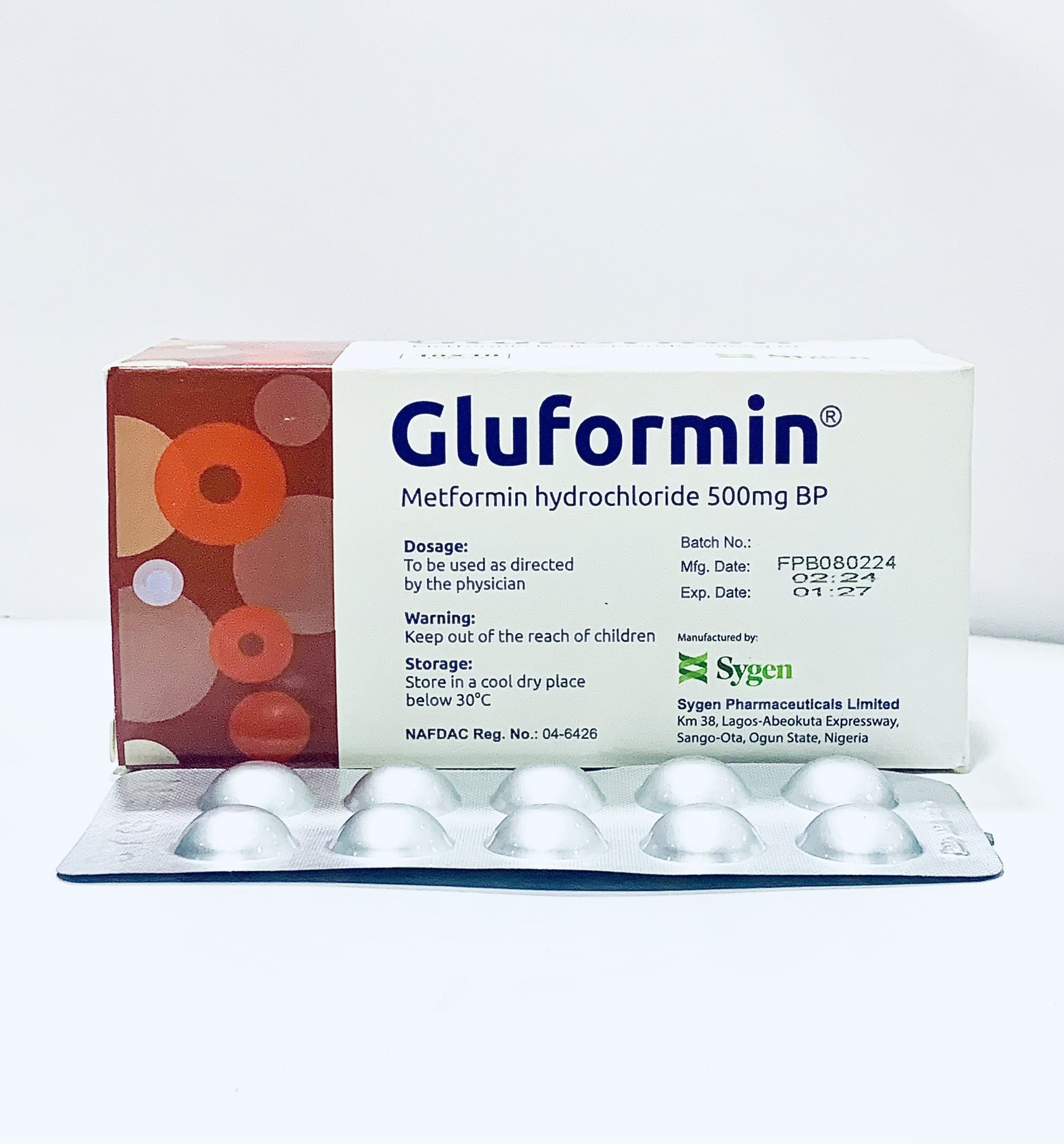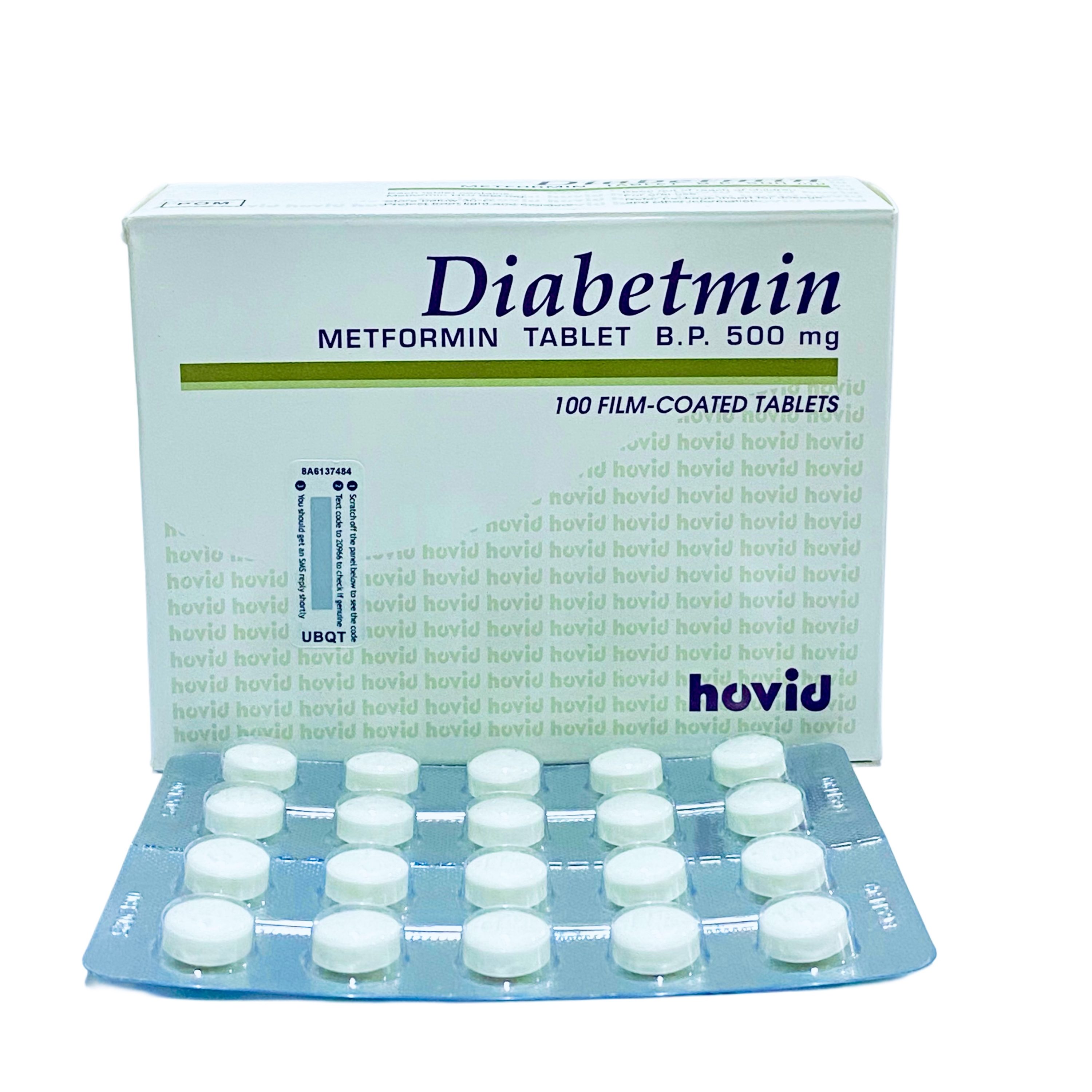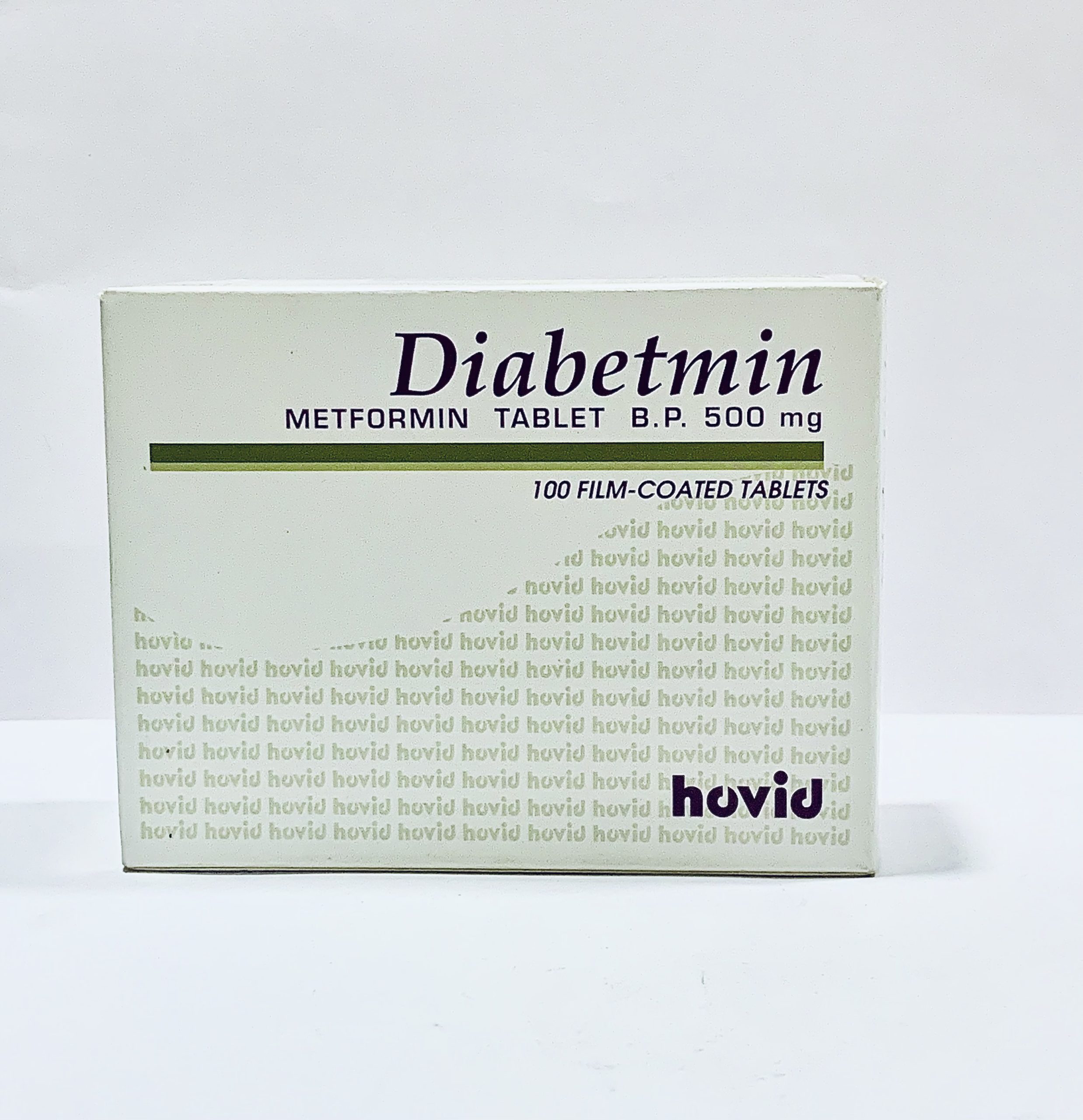Gluformin 500mg Tablet contains Metformin, an oral antidiabetic medication. It’s primarily used to manage type 2 diabetes mellitus by improving blood sugar control. Gluformin helps reduce glucose production in the liver and enhances insulin sensitivity in the body. It’s widely prescribed as a first-line treatment for type 2 diabetes due to its efficacy and favorable safety profile.
Uses
Gluformin is primarily used to treat type 2 diabetes mellitus. It’s often prescribed as a first-line treatment, either alone or in combination with other antidiabetic medications. In some cases, it may also be used to treat polycystic ovary syndrome (PCOS).
Benefits
- Lowers blood sugar levels in type 2 diabetes
- Improves insulin sensitivity
- Reduces glucose production in the liver
- May aid in weight loss or weight maintenance
- Helps prevent diabetes-related complications
- Can improve fertility in women with PCOS
- Generally well-tolerated with a low risk of hypoglycemia
- Regulation of menstrual cycles in women with PCOS
- Induction of ovulation in anovulatory women
How It Works
Metformin, the active ingredient in Gluformin 500mg Tablet, works by decreasing glucose production in the liver and improving insulin sensitivity in muscle and fat cells. This helps the body respond better to its own insulin, leading to better blood sugar control without causing weight gain.
Duration of Action
Metformin begins working within hours of administration but may take several days to achieve full therapeutic effect. The medication remains active in the body for approximately 24 hours, which allows for consistent blood glucose control.
Dosage
| Patient Type | Recommended Dosage | Frequency |
|---|---|---|
| Adults (initial) | 500mg | Twice daily with meals |
| Adults (alternative) | 850mg | Once daily with a meal |
| Maximum dose | 2550mg | Divided throughout day |
| PCOS treatment | 500-1500mg | Daily in divided doses |
Warnings
Gluformin 500mg Tablet should not be used in patients with severe kidney disease, liver disease, or conditions that may cause lactic acidosis. Alcohol should be avoided while taking this medication. Seek immediate medical attention if you experience symptoms of lactic acidosis such as weakness, unusual muscle pain, difficulty breathing, or stomach discomfort.
Side Effects
Common side effects may include nausea, diarrhea, stomach upset, and a metallic taste in the mouth. These effects are usually mild and improve over time. Serious side effects are rare but may include lactic acidosis, especially in people with kidney problems.
Pregnancy and Breastfeeding
Gluformin may be used during pregnancy if clearly needed. Your doctor will determine if the benefits outweigh potential risks. Small amounts of metformin pass into breast milk, but effects on nursing infants are unknown. Consult your healthcare provider before breastfeeding.
Interactions
- Certain diuretics (water pills)
- Corticosteroids
- Carbonic anhydrase inhibitors (like topiramate)
- Certain HIV medications
- Cimetidine
- Contrast dyes used in some medical tests
- Other diabetes medications
Precautions
Take Gluformin with meals to reduce stomach upset. Regular monitoring of blood sugar levels is essential. Regular kidney function tests are recommended, especially in elderly patients. Stay hydrated while taking this medication. Vitamin B12 levels should be monitored during long-term treatment.
Important Information
Take Gluformin with meals to reduce stomach upset. Regular monitoring of blood sugar levels is essential. Inform your doctor if you’re pregnant, planning to become pregnant, or breastfeeding. Gluformin may need to be temporarily discontinued before certain medical procedures or tests. Always carry identification stating that you have diabetes and are taking this medication.
Product Image Highlights








Customer questions & answers
There are no questions yet. Be the first to ask a question about this product.
Tailored to Your Needs
-
 ₦35,000.00Rated 0 out of 5
₦35,000.00Rated 0 out of 5Aprovel 300mg Tablets contain Irbesartan, which is designed to treat...
-
 ₦7,000.00Rated 0 out of 5
₦7,000.00Rated 0 out of 5Glanil 5mg Tablet contains glibenclamide an oral diabetes medication used...
-
 ₦40,000.00Rated 0 out of 5
₦40,000.00Rated 0 out of 5Daoni is an effective medication for type 2 diabetes. It...
-
 ₦45,000.00Rated 0 out of 5
₦45,000.00Rated 0 out of 5Forxiga 10mg is used to treat type 2 diabetes. It...







































Reviews
There are no reviews yet.